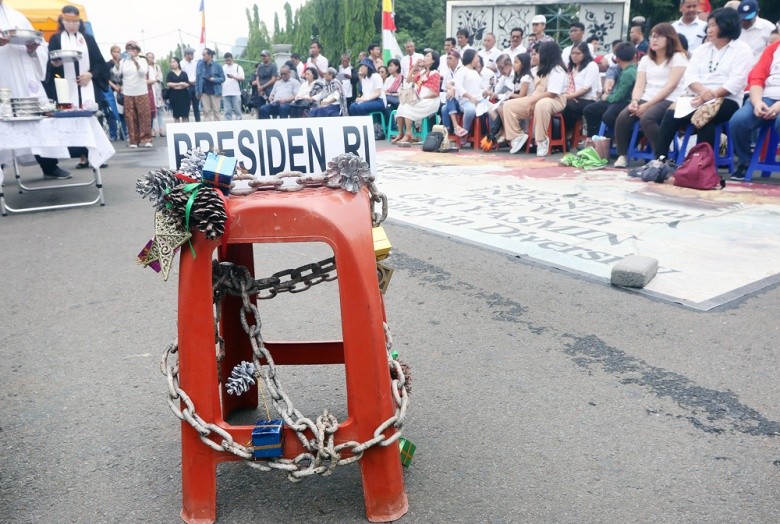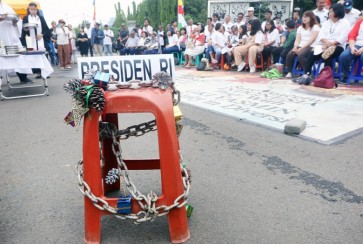Popular Reads
Top Results
Can't find what you're looking for?
View all search resultsPopular Reads
Top Results
Can't find what you're looking for?
View all search resultsJokowi’s momentum to restore religious harmony, as promised
During his presidency, Jokowi has shown that he means business when it comes to fighting religious conservatism, with the dissolution of the Islam Defenders Front (FPI) and Hizbuth Tahrir Indonesia (HTI), two groups known for religious intolerance.
Change text size
Gift Premium Articles
to Anyone
A
s we near the end of President Joko “Jokowi” Widodo’s second term in October, attacks on freedom of religion and opposition to the construction of houses of worship remain rampant. From the Greater Jakarta area to remote villages in Riau and Papua, religious minorities are pleading for the government’s help in ensuring their freedom of belief as enshrined in the Constitution.
The pledge to improve tolerance in multireligious and multiethnic Indonesia is in fact stipulated in Jokowi’s campaign platform, known as Nawacita (nine goals), which was introduced during the 2014 presidential election. The third of the nine points highlights the strengthening of harmony in the country’s diverse society.
Indonesia itself has long been regarded by the international community as an emerging Muslim majority nation with a proud legacy of religious tolerance, evidenced by the presence of various major religions as well as indigenous beliefs.
However, such peaceful coexistence was often tainted by acts of intolerance that saw an increasing trend in the late 1990s, when then-president Soeharto put an emphasis on Islam to cling to power, paving the way for friction between different religious and ethnic groups.
An ethnoreligious conflict erupted between 1999 to 2002 in the predominantly Christian communities in Maluku. The bloody unrest that claimed at least 5,000 lives and caused hundreds of thousands to flee for safety is said to have occurred because of racial hatred provoked by unidentified people who reportedly insulted Muslims. Another causal factor in the conflict is understood as a perceived shift in the makeup of the bureaucracy, as once a Christian-heavy civil service slowly made room for majority Muslim groups.
Decades have passed since this horrifying episode in the country’s history, but reports of sectarian conflicts keep on making headlines. Human rights advocacy group Setara Institute noted in its latest annual publication that 329 violations of religious freedom occurred last year in Indonesia, with regional administrations, police and military personnel the main perpetrators.
Setara further points out that President Jokowi has failed to generate policy breakthroughs to support the promotion of the freedom of belief he himself promised at the start of his presidential term. Instead, regulations hampering religious liberty continue to exist, both at the central and regional levels.



















